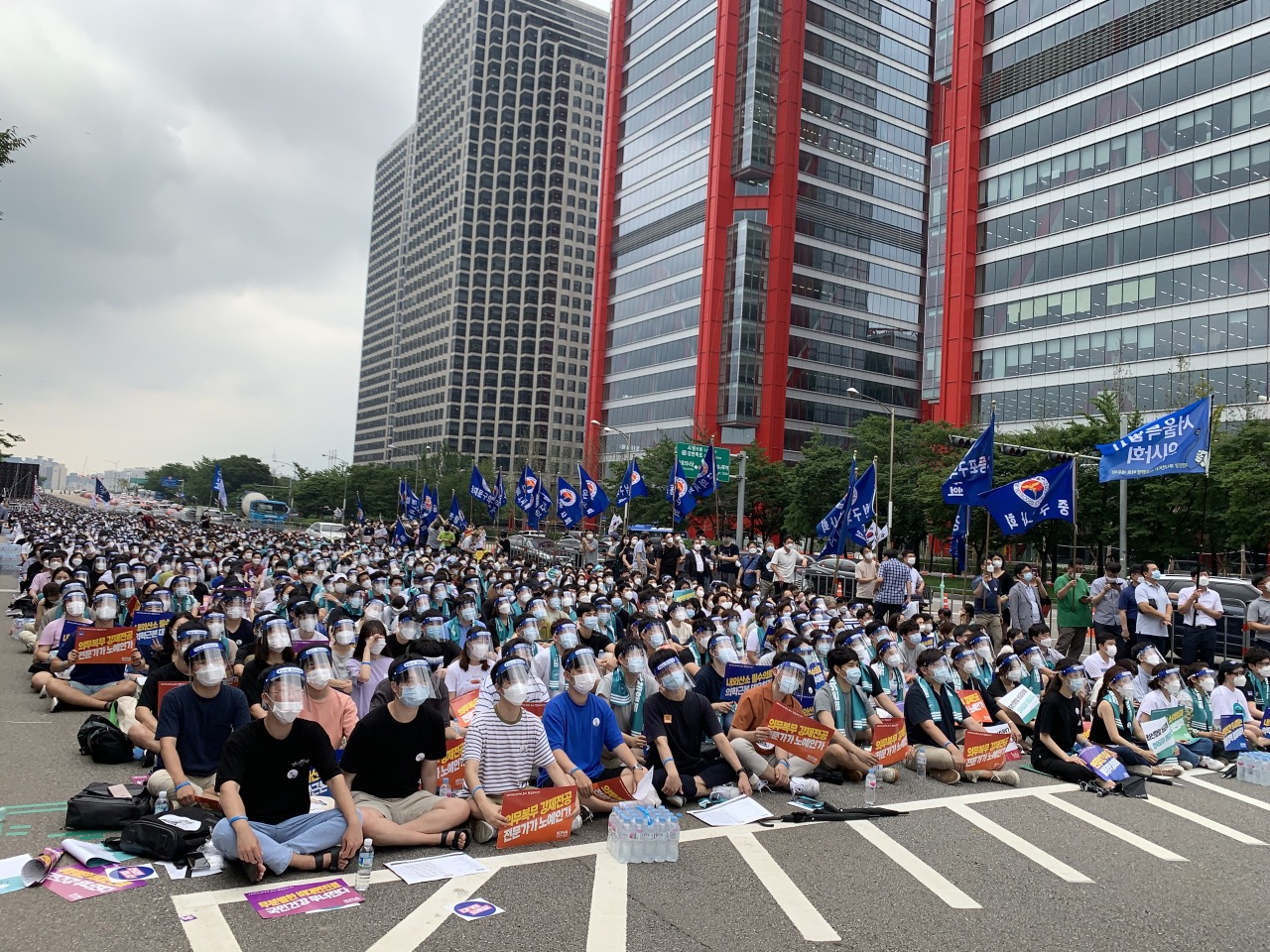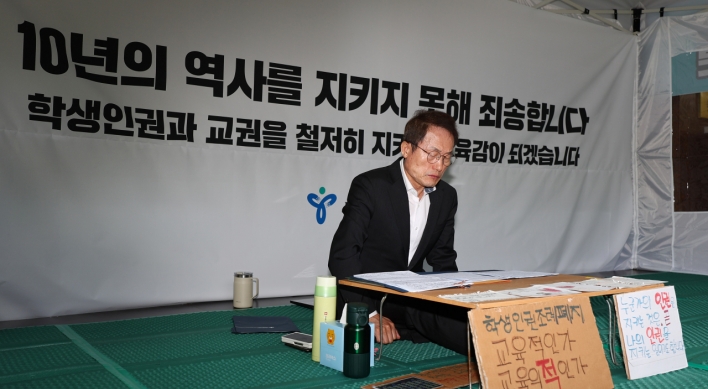
Talks between doctors and the government may resume as the number of COVID-19 cases bounce back to first-wave numbers in Korea, signaling a pause in the two-week dispute over health reform plans.
The Korean Medical Association, which is the largest union of physicians in the country, on Tuesday requested for a dialogue with the Minister of Health and Welfare Park Neung-hoo following a sudden surge in the daily new infections in Greater Seoul area over the long weekend.
The association said in a statement that through the talks, it was hoping “to prompt progress” in the negotiations as “tackling the resurgence in cases is of utmost importance.” If the request is accepted, this would mark the first meeting between the minister and the doctors with regard to the health reforms.
In response, the ministry said it was “willing to engage in talks with the medical community” without yet disclosing whether the minister would be coming to the table or giving concrete dates.
No middle ground was found in past meetings between the doctors’ representatives and the health officials, as the ministry remains adamant the plans are due to be approved as drawn.
The plans include lifting a cap on medical training places to admit 4,000 more students over 10 years starting 2022 and extending state health insurance coverage to Korean traditional herbal remedies. The ministry says these changes are necessary to expand health care access in rural regions and to push the drive for “globalizing and standardizing” Korean traditional medicine.
The doctors say however that increasing the number of medical students without fixing poor labor practices in rural medicine is a solution that only profits hospitals and universities that operate them. As for paying for traditional herbal remedies with national health insurance, the doctors said indispensable therapies such as anticancer drugs should have been prioritized in getting the coverage.
During both marches, held Aug. 7 and 14 in Yeouido, western Seoul, critical and urgent care services were not disrupted and essential staff did not take leave. All participating doctors were required to go through symptom checks and put on protective equipment such as face shields.
The next round of doctors’ marches are set for next week, but they may be withheld or called off depending on how negotiations with the government unfold.
By Kim Arin (arin@heraldcorp.com)




![[KH Explains] No more 'Michael' at Kakao Games](http://res.heraldm.com/phpwas/restmb_idxmake.php?idx=644&simg=/content/image/2024/04/28/20240428050183_0.jpg&u=20240428180321)













![[Herald Interview] Mistakes turn into blessings in street performance, director says](http://res.heraldm.com/phpwas/restmb_idxmake.php?idx=652&simg=/content/image/2024/04/28/20240428050150_0.jpg&u=20240428174656)
